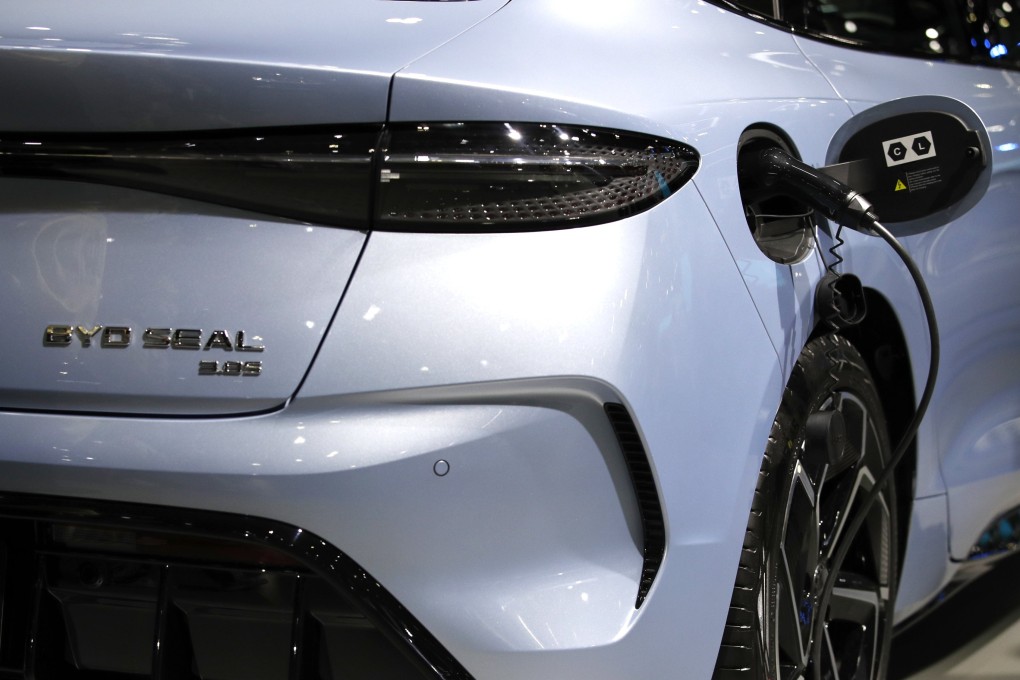US-China trade war: Reports say Biden administration to hit Beijing with tariffs on EVs, strategic sectors
- The US will impose new, elevated tariffs that focus on key industries including electric vehicles, batteries and solar cells, according to Bloomberg and The Wall Street Journal
- The move, which comes on top of other non-tariff restrictions of some of the products, could ‘balkanise’ the US EV industry, one analyst said

US President Joe Biden’s administration will announce as soon as next week plans to sharply raise import tariffs on Chinese electric vehicles and a range of other goods related to the new energy economy, according to US media reports.
Following its review of Section 301 tariffs originally put in place by the administration of former president Donald Trump in 2018, the US Trade Representative office (USTR) is expected to raise the tariff rate on EVs from China to roughly 100 per cent from a rate of 27.5 per cent, The Wall Street Journal reported.
Citing people familiar with the situation, the Journal reported that critical minerals from China would also be targeted, without specifying the new rate.

In addition to the EV tariffs, Bloomberg reported, USTR will also hike tariffs on batteries and solar cells, while other existing China levies from the Trump years, on some US$300 billion worth of goods, are expected to remain intact. An announcement would likely be made on May 16, it said.
Existing tariffs on Chinese EVs include a 2.5 per cent levy on all autos imported to the US.
While the Biden administration has not yet confirmed the plan, some of the president’s top economic officials have signalled their concern about manufacturing overcapacity in China, and the possibility that the overflow could flood American markets.
During her visit to China last month, US Treasury Secretary Janet Yellen called on her counterparts to address the country’s industrial overcapacity issues, particularly in new-energy vehicles and solar modules.
On Wednesday, in testimony to the House Appropriations Committee, Commerce Secretary Gina Raimondo voiced concern that, in response to slowing economic growth, China could boost its percentage of global manufacturing output to 60 per cent from “about 30 per cent” now. She signalled that a response was on the horizon.